|
Full Hearted Peace
In Old Irish "athlam" means inactive slow reluctant as in a half-hearted peace "síodh an athlamh" the opposite of active fast full hearted "siodh" Contrast with "síth báitte coindel" a solemn peace as Old Irish "siodh" becomes Modern Irish "síth" Put your hand over your heart as you say "Siodh" or "Síth" or the word for peace in a different language. What does full hearted peace feel like? What does it feel like to take the quest for peace seriously?
0 Comments
O, Aw, Sounds of Peace in Abua and Igbo
In Abua, a language of Nigeria the alphabet includes Ọ, ọ as in "Eephọ" (peace). In another language of Nigeria the Ọ, ọ sound appears in "ọnwa" (moon) and sounds like the short O sound "AW" in office Peace in Igbo is " Ùdo" (peace), sometimes spelled "Udo" or "Udho" peace is also "Ndokwa". Mind Enjoys Peaceful Emerges In Kurtöp, a language of Bhutan "Dekit" means peace and prosperity linking the two words as synonyms a short part of the word "Kit" and "Kitpa" is peaceful "Jong-wa" means emerge combining for peaceful emerge or "Kitpa Jong-wa" translated happy "Sem ga-taki" also means happy, or literally mind enjoy
Kurtop: Kurtöp (xkz), Kurtop, Kurtöp, Kurtopkha, Kurtokha, Gurtü; Kürthöp; Kurteop, a vulnerable language―"Dekit" (peace, prosperity), "Dewa-ni-kipa" (bless, comfort), "Dewa" (peace, tranquility), "Kit" (peaceful), "Kitpa" (peaceful), "Jong-wa" (emerg), "Kitpa Jong-wa" (happy, lit. peaceful emerg), "Sem ga-taki" (happy, lit. mind enjoy), "Har-si" (feel happy)―Bhutan (Kurtö region in Bhutan, roughly the area of Lhüntse district in eastern Bhutan) Lhüntsi district, up to Tibetan border, west of Kurichu river).
Ora—"ǂxãĩ-b" (peace, to be peaceful), "!nó" (to be quiet), "!nō" (to be quiet, silent)—South Africa.
Aari (aiw)—"Laqmi" (peace)—Ethiopia. Abaluhya—"Omulembe" (peace) —Kenya. Abar or Mungbam—"Bìmje" (peaceful), "Bimbene" (peaceful)—Cameroon. Abau—"Liwak marowhway" (peace)—Papua New Guinea. Abaza—"Māmər" (peace)—Russia (Karachay-Cherkess Republic) and Turkey. Abellen, Ayta—"Tana" (peace)—Philippines. Abenaki (alg), Abnaki—"Olakamigenoka" (peace), "Okikiamgenoka", "Kamignokawôgan" (peace), "Wlakamigen" (peace)—Native American, Maine, USA, Montreal, Canada, North America. Abenaki: Penobscot Abenaki, Aln8ba8dwaw8gan (abe), Eastern Abenaki—"Wlakamigen" (peace), "Čik" (calm, quiet)—North America. Abkhaz (abk, ab), Abkhazian, Aбхазский, Abxazo, Abxaz, Abkhazian (abk), Apkhazian, Apkhaz, Aԥсуа бызшәа [aṗsua byzšwa], Aԥсшәа [aṗsšwa], Abkhaze, Abjaso, a vulnerable minority language in Europe—"Аҭынчра" [Aṭynčra] (peace)—Caucasus and Georgia (Abkhaz Republic), Turkey (diaspora communities in Turkey), Russian Federation, the Middle East and Western Europe; includes the Ashkharawa dialect officially subsumed under Abaza in the Russian Federation. Abui (abz)—"Pendamai" (peace), "Amon" (calm), "Moku" (calm), "Rama" (calm), "Dame" (peace)—Indonesia (East Nusa Tenggara, Greater Alor, and Timor-Alor-Pantar). Aceh, Achinese (ace), Acehnese—"Mayget" (peace), "Damien" (peace)—Aceh, Sumatra, Indonesia. Achaemenid Elamite (elx)—"Gu-gu" (peace), "Gugu" (peace)—Elamite Empire, Ancient Near East, Middle East. Achagua (aca), Achawa, Ajagua, Achugua, and Xagua—"Sáictaque'e" (peace), "Sáictacta" (peace)—Colombia (Eastern Colombia). Aché (guq)—Krɨ̃ba rõma (peace), "Kra gatu" (calm), "ɨ praru gatu" (calm (of the sea)—Paraguay. Achuar-shiwiar (acu)—"Angkan pengker nintimratin" (peace)—Peru. Adyghe (ady), Adygean, Adyghabze, адыгэбзэ, Adygei—"Rупсэху" (peace), "Rупсэф" (peace), "мамырныгъ" (peace)—North-west Caucasus Russia. Afar (aa)—"Salaamata" (peace)—Ethiopia, Eritrea, Djibouti. Afrikaans (afr)—"Vrede" (peace)—South Africa. Aghul (agx), Агульско-русский словарь, Aghul-ch'al, Agiul Shui. Autonym. агъул, Aġul, агъул чӀал , Ağul ҫ̇al,—"ислахІвел" [Islahwel] (peace), "Islakhivel" (peace), "Sakin" (calm), "секинвел" [Sekinwel"] (peace), "Sekinvel" (peace), "иджеф прил хороший" (good), "идже прил хороший" (good), "Idzhef" (good)—Russia. Aghul (Koshan dialect)— "авадушас" [Awadušas] (peace), "Avadushas" (peace), "Idzhed" (good) or "Sakin" (calm)—Southern Dagestan, Russia and Azerbaijan. Aguaruna—"Ag'kan" (peace), "Epegtuniajum" (peace), "Mijámu" (calm)—Peru (Marañon River area) Agutaynen (agn)—"Kaoyan" (goodness; well-being; peace)—Philippines. Ainu (mis)—"アプンノ [Apunno in Katakana] , あぷんの" [Apunno in Hiragana] (peace)—Japan. Äiwoo (nfl)—"Väkolooli" (make peace), "Meloo" (peaceful), "Wâmeloo" (make peace)—Reef-Santa Cruz Islands, Solomon Islands. Ajië, Bakla,Beki, Wai, and A’jie—"Ta" (peace)—New Caledonia, Oceania Ajja, Aja, or Ajagbe—"Fafá" (cold, peaceful, peace, shading), "Ŋcifafa" (peace), "Fɛɛ" (willingly, easily, peacefully),- Benin, a small country in Africa. Ajyininka Apurucayali—"Kamiitha" (peace)—Peru. Akan (ak)—"Asmomdwoe" (peace)—West Africa. Akawaio (ake)—Ereuta (peace), "Tʉusewankamai'" (peace), "Iꞌnɨꞌpanʉkʉ pɨꞌ teꞌsan (make peace)—Guyana (Mazaruni River), Venezuela (Bolivar State), Brazil (Roraima State). Akkadian (akk)—"Salmu" (peace)—Mesopotamia (extinct). Akoose (bss)—"Nsaŋ" (peace) or "Ne nsaŋ"—Cameroon Alabama (nai)—"Ittimokla" (peace), "Utimokla" (peace), "Innaaɬiilka" (peace), "Oolakano" (to be at peace, be friendly, be peaceful)—Native American, North America. Alamblak (amp)—"Duka mmokfot" (peace, hope, forget, lack of worry, think crazy)—East Sepik, Papua New Guinea. Albanian (sq)—"Paqe" (peace), "Páqja" (peace)—Albania, Kosovo, Macedonia. Albanian—"Paqe" (peace), "Páqja" (peace), "Pake" (peace)—Albania, Kosovo. Alekano, Gahuku (gah)—"Hulu" (peace), "Zou" (peace), "Alémo zou live" (silence, make quiet, make peaceful), "Lipizeko" (peaceful, patient, calm), —Papua New Guinea (Eastern Highlands Province). Algonquin (alg)—"Wâki Ijiwebis-I" (peace), Waki Qiwebis—North America (Canada Quebec). Alsatian (gsw)—"Fréda" (peace), "Friede" (peace)—France (Alsace), Switzerland. Alune (alp) —"Mise" (peace), "Mise kai lomai" (peace)—Indonesia. Amanab (amn), Amanab (Naineri)—"Afa sifakalig” (peace)—Papua New Guinea (Sandaun Province). Ambonese Malay—"Bakubae" (peace or damai), "Dame" (peace)—Ambon Island in the Maluku Islands of Indonesia. Amele (aey), Amale, Huar, Jagahala, Haija—"Malol" (peace), "Manin" (peace), "Tanaw-eʔ" (to make peace)—Madang, Papua New Guinea. Amharic (amh, am), Kuchumba, Amarinya, Amharinya, and Amarigna—"ሰላም" [salām] (peace), "Salam" (peace)—Ethopia, Egypt, Israel. Ampeeli (Safeyoka dialect)—"Sɨmeho" (peace)—Papua New Guinea. Ampeeli (Wojokeso dialect)—"Sɨmeho" (peace)—Papua New Guinea. Ampeeli, Safeyoka, Angan, Ampele, Ambari—"Sɨmeho" (peace)—Papua New Guinea. Angave (aak), Ankave—"Ayinɨ́ŋɨ́" (peaceful), "Maiwi" (peacefully, unconcerned, innocently, unaware, careless)—Papua New Guinea's Gulf Province. Anglo Saxon, Old English (ang)—"ᚠᚱᛁᚦ” [Friþ] (peace), “Frið" (peace)—England (extinct). Antillean Creole—"La Pé" (peace), "Lapé" (peace)—France (French Antilles) or Martinique. Arabe—"Sala ̄m" (peace)—Africa. Arabic: Arabic (arb)—"سلام [Salām, Salam] (peace), " صلاة من أجل السلام" (peace) “Salaam” (peace), Salam” (peace)—North Africa, Mideast, Central Asia, and liturgical, Maghreb, Near East. Arabic: Gulf Arabic—"Salaam" (peace) —United Arab Emirates (Dubai, Abu Dhabi, Sharjah), Qatar, Kuwait, Bahrain, Saudi Arabia, Iraq and Oman. Aragonese (an)—"Patz" (peace)—Spain. Aralle—"Kamasahkeang" (peace)—(Indonesian Tribal Language) Aramaic, Syriac, Assyrian (arc)—"ܫܠܡܐ [Shlamaa] (peace)—Iraq, Iran, Syria, and liturgical. Aranda (are), Langrev—"Urnere" (peace)—Lower Southern (Arunta) Australia. Aranés (oci), Aranese—"Patz" (peace), "La Patz" (peace)—Spain, Europe. Arapaho (arp), Hinónoʼeitíít—"Neneenii3o'oneihnoo" (I am behaving well, peacefully), "Teneiitooneiht" (calm, quiet, virgin)—Native American Arawak (arw-000), Araguaco, Arahuaco, Arahuacos, Arawac, Arowak, Arrowukas, Aruak, Aruaqui, Arwuak, Lokono, Lokono Dian (people's talk), Luccumi, an Amerind, Equatorial, Arawakan, Maipuran, Northern, Ta-Arawakan language—"Sare" (well, in Arawak the word well as in live well includes peace and harmony), "Sareken" (better), "Ymadianthi, Omadianthi, Madianthi" (n): companion, buddy, comrade. Sare b-a-li kaky-n b-omadianthi oma. “You must live well (in peace and harmony) with your companions/comrades.” Sare w-a-the ymadianthi oma kaky-n. “Let us live well (in peace and harmony) with our companions)—Suriname (Arawak is spoken by some hundred Arawak people in scattered locations across the north of Suriname), Guyana, Venezuela. Arawak is spoken by a tribe of indigenous peoples primarily located in the Caribbean and northern South America. Arbëresh, Arbyresh (sq)—"Pakjy" (peace), "Paqe" (peace)—Southern Italy. Arifama-Miniafia—"Tufuw" (peace)—Papua New Guinea Armenian (hye, hy) Arménien, Hayeren—"խաղաղություն" [Xaġaġut'yun, Xałałowt‘yown], “Khaghaghoutyoun” (peace), “Khanhaghutyun" (peace), "Khaghaghoutyoun", "Khaghaghutiun", "Ashkharh" (peace), "Han-gč̣im" (lie, rest), "Han-gist" (tranquility), Աղոթք խաղաղության (prayer for peace)—Armenia, Armenian Highlands, Iran, Turkey, Russia, and Azerbaijain. Arrernte, Eastern (aer)—"Mwarre" (peacable, good)—Alice Springs, Australia. Assamese (as)—" শান্তি [śānti] (peace), "Sānti", "Shanti", "Ȟ̇ānti", "Nti" or "Xanti" (peace)—India, Bangladesh, and Bhutan Assyrian (aij, aii), Neo Assyrian or Neo-Aramaic—"Šulmu" (welfare, safety, peace, prosperity)—Iran, North Iraq, Syria, Turkey. Armenia, and Israel. Assyro-Babylonian—"Šul-mu" (peace)—Ancient Semitic.language. Asturian: Asturian (ast)—"Paz" (peace)—Spain. Asturian: Bable (asf)—"Paz" (peace, peace of mind)—Spain: Princedom of Asturias and Portugal. Auhelawa—"Nuwadaumwali" (peace, calm heart, peaceful) or "Ebe"—Papua New Guinea. Avañe'ẽ Guarani, Guaraní Paraguayo—"Py’a guapy" (peace) or "Ɨvɨ-tuporeʔɨ̃" (calm)—Paraguay Avar (av)—"Рекъел" [Reqel] (peace)—Caucasus. Avestan (ae)—"Āxšti" (peace)—Iran (extinct). Avestan—"Axšti" (peace)—Iran (extinct) Ayautla Mazatec (vmy)—"Kjuaxiu" (peace)—Mexico, Mexican state of Oaxaca, in the town of San Bartolomé Ayautla. Aymara, Ajmara—"Hacaña" (peace), Qasiki (free; peaceful; tranquil)—Peru, Bolivia, Paraguay, Argentina, Uruguay, Chile, and Brazil. Ayta Abellen—"Tana" (peace)—Philippines Azeri (az), Azerbaijani (azj)—"Sülh" (peace, armistice, truce, amicable, orderly), صولح , "Salh", "Solh" (peace, armistice, truce, amicable, orderly), "Barış", "Архајынлыг", "динҹлик", "дүнја", "сакитлик", "Cүлһ" "Dünya", "Dinçlik" (peace), "Rahatlıq" (peace, calm, boon, quietude, cosiness, convenience, lull, quietness, quiescence, placidity, rest, quiet, comfort, serenity, repose, ease, facilitation, relief, amenity, facility, accommodation, improvement)—Azerbaijan, Russian, Daghestan, Iran, Afghanistan, Iraq, Syria and Turkey. Azeri, Azerbaijani (azj) Quote—"Şöhratparastlik qurtaran yerdan da əmin amanliq başlaylr." (Peace begins just where ambition ends.)—Azerbaijan, Russian, Daghestan, Iran, Afghanistan, Iraq, Syria, and Turkey. Azeri or Azerbaijani (azj) Quote—"Sülhü qoruyub saxlamaq onu qazanmaqdan daha asandır." (Better keep peace than make peace.)—Azerbaijan, Russian, Daghestan, Iran, Afghanistan, Iraq, Syria, and Turkey. Babylonian, a dialect of Akkadian—"šul-mu"—Ancient Semitic language. Balanese (ban) or Basa Bali—"Damé", "Shanti", "Swasti" or "Rahayu"—Bali. Balochi (bcc)—"Sala" (peace), "Aman" (peace), حیر/صلح or ایمنی "Muhnt" (a share of stolen property restored to the owner as a peace offering)—Iran and Pakistan. Bambam—"Kamasannangam penaba" (peace)—Indonesian Tribal Language. Bambara (bm)—"Here” (peace), “Hèrè” (peace), “Errébé" (peace)—Mali. Bangi (Bobangi) (bnt)—"NyiEe" (peace), "Nyiee" (peace)—Congo. Baoulé—"Ahoudjo hé" (peace), "Dyra koa!" (keep calm)—Ivory Coast, Cote d'Ivoire, West Africa. Barakhinei—"Pû" (peace)—a Conlang. Bargam, Mugil (mlp)—"Tamaz" (peace, good time, offering, sacrifice)—Madang Province, Papua New Guinea. Bari (bfa)—"Fá'rana" (peace) or "Liòngit" (peace) or Yukan (peace, rest)—South Sudan. (Africa). Basaa (bas)—"SàN" (peace), "Sàn" (peace), "Nsaŋ" (peace)—Cameroon. Bashkir (ba)—"тыныслыҡ" [Tïnïslïq] (peace), "татыулыҡ" [Tatıwlıq] (peace), "тыныс" [Tynys] (peace), "Tınıslıķ" (peace)—Volga, Urals, Central Asia. Basque (eu)—"Baké" (peace), "Bakea" (peace)—Spain, France. Batak (btk)—"Pardamean" (peace)—Indonesia. Bavarian (Bayrisch)—"Fridn" (peace)—Bavaria (Germany). Belarusian (bel, be), Byelorussian, беларуская—"мир" [Мір, Mir], Пакой [Pakoj] (peace) (peace), "спакой" [Spakój] (peace), "згода" [Zgoda] (peace)—Belarus. Bemba (bem, byi, bmy, bmb), Chibemba, IciBemba—"Mutende" (peace), "Mutenden" (peace), "Ukwikala mu" (peace), "Tondolo" (silently, calmly)—Northern Zambia, Zaïre, Congo-Kinshasha. Niger-Congo. Bena-bena, Benabena—"Fulu huseꞌna" (peace), "Fulunaꞌa" (peace), "Fulu hu'ehibe" (slow, unhurried, not in a rush, gentle, peaceful)—Papua New Guinea. Bengali, Bangla (bn)—"শান্তি" [śānti, Shanti] (peace) "Sānti", "Sainta", "Shanti", "Shaan-ti" (peace), "Abirōdha" or "Abirodha" (harmony, peace, accord, agreement, amity, friendliness)—Bangladesh and India (West Bengal, Tripura and Barak Valley). Berber—"Thalouith" (peace)—Algeria, Mali, Niger. Béti fang—Mvoay (peace) — Ivory Coast. Bhojpuri (bho)—"Shānti" (peace), "Sānti" (peace), "Sakoon" (peace)—India (Uttar Pradesh), Mauritius, Nepal. Bihari (bh)—" শান্তি" [Śānti]—Bangladesh and India. Biloxi (bil) and Ofo—Toke (calm) or "Tokerti" (calm, no breeze stirring)—United States (Mississippi Valley). Binisaya, Cebuano—"Kamingaw" (peace), "Pagdait" (peace)—Philippines. Bisaya (map)—"Kalinaw" (peace)—Brunei. Bislama (bis), Melanesian Pidgin English—"Natamata" (peace), "Pis" (peace, piece), "Temat" (peace)—Vanuatu, Melanasia. Blackfoot (bla), Siksiká—"Innaaissttiiya" (peace), "Innaihtsi'iyi" (peace)—Canada and United States. Bobo (nic)—"Makonakon" (peace)—Burkina Faso. Boko (nic)—"Lumana" (peace), Salama" (peace)—Benin, Nigeria. Bosnian (bs)—"Мир" [Mir] (peace), "Spokoj" (peace)—Bosnia and Herzegovina, Serbia, Montenegro, Kosovo. Brahui (dra)—"Âsûdaî" (peace)—Pakistan, Afghanistan, Iran. Breton, Brezhoneg—"Peoc'h" (peace), "Pèc'h" (peace)— France (Bretagne). Bribri (bzd)—Se̱ne bë̀rë (peace), Se̱rke bë̀rë (peace)—Costa Rica. Bugis—"Marennui mennang" (peace)—Indonesian Tribal Language. Bulgarian (bg)—"Мир" [Mir] (peace), “споко́йствие” [Spokójstvie] (peace) —Bulgaria, Turkey, Romania. Buli (nic)—"Goom-jigi" (peace)—Ghana. Bulu (bjl)—"Mvo'e" (peace), "évovoé" (calm, tranquil), "Ngbwa" (peace, friendship alliance, friendliness, kindness)—Cameroon and Niger-Congo; Africa. Burmese (my)—"င္ရိမ္းခ္ယေမ္းရေး" [Nrim-khyam-ye, Nyein Chan Yay] (peace), "Nyeinjanyei" (peace), "Ngrim:hkyam:re" (peace)—Myanmar Burushaski (bsk), Burū́šaskī Hunza—"Aram" (peace), "Saláamn" (peace), "Sukóonny" (peace) or "Manókuradj" (peaceful, generous, gentle)—Northern Gilgit-Baltistan, Pakistan. Cadhinor—"Peos" (peace) —a Conlang of Almea. Caglăll— "Pasc" [Pash] (peace), "Pasc" [paʃ] (peace)—Conlang by a Chilean programmer. Cajun French (Acadian, Kreyol Lwiziyen)—"Pé", "Lapé", "Trankil" (peaceful)—Louisiana (USA). Canis—"Йюρaςςåmmåж” [Joorahssommòhzje] (peace)—Conlang. Capeverdian Creole—"Paz" (peace), Pas (peace)—Cape Verde Islands. Caribe (car), Galibi—"Sara'me" (peace), "Panawa" (peace)—Venezuala, Suriname. Caribe—"Sara'me" (peace) or "Panawa" (peace)—Venezuala, Suriname. Carolinian (map)—"Gunnammwey" (peace)—Micronesia. Carolinian—"Gúnnammwey" (peace)—Micronesia. Catalán (cat, ca), Catalão, Català, Catalan-Valencian-Balear—"Pau" (peace), "Vèncer" (calm), "Calma" (calm), "Assossegat" (peaceful, motionless and calm; placid, easy, easygoing, leisurely, placid , quiet, smooth, still, tranquil, unruffled, not hurried or forced)—Catalonia, the Valencian Region, the Balearic Islands, the Franja (Fringe of Aragon), Andorra, France, Roussillon and Alghero (Sardinia). Catanese, Catanès—"Paci" (peace)—Conlang (Adarian of Canalia). Cayuga—"Odriyohsrędaˀǫh" (peace), "Ganig}h[yo" (peaceful)—Ontario, Canada. Cebuano (ceb)—"Kalinaw" (peace), Kahusayan" (peace)—Philippines. Cebuano—"Kalinaw", "Kahusayan" (peace)—Philippines (Central part). Central Atlas Tamazight—"Talwit" (peace)—North Africa. Central Tarahumara—"We kii'ri" (peace)—Mexico (Chihuahua).. Cerma—"Kufĩɛŋo" (peace), "Yaafɛ̃lle" (peace)—Burkina Faso. Chamorro (cha, ch)—"Minaggen" (peace) or "Pås" (peace) or "Påsifiku" (Pacific, peaceful, peaceful state, peace) or "Åplåka" (make peace)—Guam and the Northern Mariana Islands. Champenois (Aube – Marne – Haute-Marne)—"Tocque mornicault" (peace), "Calme" (calm, peace), "Paix" (peace)—France and Belgium. Chechen (ce)—"Машар" [Maşar, Mashar] (peace)—Chechnya (Caucasus), Russia (Chechen Republic) Cherokee, Tsalagi (chr)--"ᏙᎯᏱ" [dohiyi] (peace), "Dohiyi" (peace), "Nvwadóhiyada" (peace)—North America, USA (Oklahoma) Cheyenne (chy)—"Nanomonsetôtse" (peace), "He'kotâhestôtse" (peace)—USA (Montana, Oklahoma). Chichewa, Chewa, Nyanja (ny), Chi Nyanja —"M'tendere" (peace)—Malawi. Chicksaw (cic), Chickasaw (nai)--"Nanna Ayya" (peace)--Native American, North America (South Central Oklahoma) Chiluba, Luba (lbk)—"Ndowe" (peace)—Zaire or Dem. Rep. Congo. Chin, Zomi—"Nopsakna" (peace)—Myanmar and India. Chinese: Mandarin Chinese—"Hé píng" / 和平 (peace)—China. Chinese: Mandarin, Putonghua (zh)—"和平 [Hépíng, Heping" (peace)—China, Taiwan, Singapore. Chinese: Sichuan Yi (ii)—"ꄮꐽ" [Te-njo] (peace)—China. Chinese: Wu Chinese (wuu) y˦tɕiu˦ɦo˨ t‘a˨˩dialect (wuu-007) —"t‘a˨˩ bɦeŋ˩ ˨" (peace), tɕ‘yɛ˦˧ ko˦˧(make peace), "tɕaŋ˦˧dɦeŋ˩˩" (calm)—Jiangsu south of Changjiang River, east of Zhenjiang, on Chongming Island, mouth of the Changjiang, and north of the Changjiang in the area around Nantong, Haimen, Qidong, and Qingjiang; Zhejiang Province south to Quzhou, Jinhua, and Wenzhou. Also in United States. Chinese: Wu Chinese or Shanghainese—"Hhu bin" / 和平 (peace), "Hépíng" (peace) —Shanghai, China. Chinese: Yue, Cantonese or Jyutping —"Peng on" 和平 or "Peng an" (peace), Wo ping / 和平 (peace)—Canton (Guangdong), Macau, and Hong Kong, China. Chiquihuitlán Mazate (maq)—"Cjuajeya" (peace)—Mexico. Chishona/Manyika—"Rugare" (peace)—Africa. Choctaw (cho)—"Achukma" (peace), "Nuktanla" (peace), "Yukpa" (peaceable, peaceful), "Na yukpa" (joy, joyful man, pleasure, rejoicing, peace), "Achukma" (peace, good, well)—Native American language. Chokwe, Cokwe—"Ukulungunga" (peace)--Angola, Congo. Ch'ol, Tumbalá (cai)—"Ñʌch'chocoya" (peace), "ñʌch'tilels" (peace), "ñʌch'tʌlel lac pusic'al" (peace)—Chiapas (Mexico). Chontal, Tequistlatec (nai)—"Aylobaha Gafuleya" (peace)—Mexico. Choua—"Salam" (peace)—Africa. Chuang, Zhuang (zha, za), Vahcuengh, Northern Zhuang—"Bingzan" (peace), "Bingz" (level, even, flat, peace)—Guangxi, China. Chukchee—"Cumav" (peace) / "Цумав", "Унтэм" / "Untem", or "Amaravkėgyrgyn" / "Aмаравкэвагыргын"—Siberia. Chukchi (Chukot) (ckt, mis) —"Cumav" (peace), "Цумав" (peace), "Untem" (peace), "Amaravkėgyrgyn" (peace), "Амаравкэвагыргын" [Amaravkevagyrgyn] (peace)—Siberia. Church Slavonic: Old Church Slavonic (cu)—"Ми́ръ" [mírə] (peace)—Eastern Europe (liturgical). Chuuk (chk)—"Kunammwey" (peace)—Truk. Chuukese (chk)—"Kinamwe" (peace)—Micronesia. Chuvash (chv, Chuv, cv, chuv1255, CJU), Tchouvache, чувашский, Чӑвашла, Çăvaşla, Tënche, a vulnerable Altaic, Turkic, BolgarOghur language—"тӑнӑҫ" [Tănăş] (peace), "тӑнӑҫлӑх" [Tănăşlăh] (peace), "мир" [mir] (peace), "канӑҫлӑх" (peace)—Russia: near the Volga River. Cimbrian (Tzimbro, Tàuc') —"Bride", "Vride" (peace) —Trentino, Veneto (Italy). Cokwe—"Ukulungunga" (peace)—Africa. Comanche (nai)—"Tsumukikiatu" (peace)—North America. Comoran—"Amani" or "Salama"—Comoros, an archipelago in the Indian Ocean. Coptic (cop)—"Ϩιρηνη [Hirīnī]" (peace)—Egypt (extinct) and liturgical. Cornish (kw)—"Cres" (peace)—Cornwall (extinct). Corsican (co)—"Pace" (peace), "Paci" (peace)—Corsica (France), France (Corse), Italy (Sardiania). Corsican (North)—"Pace" (peace)—Corsica (France). Corsican (South)—"Paci" (peace)—Corsica (France).. Cree (cr)—"Wetaskiwin" (peace), Wîtaskîwin" (peace, truce, alliance), "Papayatik" (peace)—North America, Canada. Cree, Alberta Cree—"Peyahtikeyimowin" (peace, after the war)—Alberta, Canada. Cree: Plains Cree or Cree (Saulteau First Nation)—"Āstēkēsikāw" (the day is calm after the storm), "Ayiwāstin" (it is a calm day, the wind has died down), "Kāmwātapiwin" (The act of sitting quietly and not moving)—North America. Creole English: Gullah (Geechee) (cpe)—"Peace" (peace)—Georgia / Sourth Carolina sea islands (USA). Creole English: Jamaican Creole (Rasta, Jam Dung) (cpe)—"Satta" (peace)—Caribbean. Creole English: Port Moresby Creole (cpe)—"Gutpela taim" (peace)—Papua New Guinea. Creole French: Cajun French, Acadian, Kreyol Lwiziyen (frc, cpf)—"Pé" (peace), "Lapé" (peace), "Trankil" (peaceful), "Bon jour" (hello), "soleil" (sun)—Louisiana (USA). Creole French: Guadeloupe / Martinique Creole (cpf)—"Pé" (peace)—Caribbean. Creole: Port Moresby Creole—"Gutpela Taim" (peace)—Papua New Guinea. Cretan, Crétois—"Eiphnh" (peace), ειρήνη or "Irini"—Crete. Crimean Tatar (crh)—"Sulh" (peace), "Barışıq" (peace) or "Tınçlıq" (peace)—Crimea. Crio, Crioulo Creole or Portuguese Creole—"Pis" (peace)—Brazil. Croate, Croatian (hr)—"Mir" (peace rest repose) or "Svijet" (peace) or "Počinak" or "Sklad" or "Sloga" (peace)—Croatia, Bosnie-Herzégovine. Cuêzi, a Conlang—"Pēu" (peace, "Pu" (peace)—Conlang. Czech (cs) Čeština or Česky—"Pokoji" (peace), "Klid" (peace), "Mír" (peace)—Czech Republic. Dagara, Dàgáárè (dga)—"Maaro" (peace)—Ghana, Burkina Faso, Niger-Congo; Africa. Dakota (dak)—"Wóda khota" (peace time, time of truce) or "Míʾogdasʾisʾe" (calm and shining)—North America. Danish (da)—"Fred" (peace), "Friður" (peace), "Vrede" (angry)—Denmark, Germany (Southern Schleswig), Greenland, Faroe Islands. Dari (ira)—"صلح" [Sulh] (peace)—Afghanistan, Iran. Dari Persian, Afgan or Farsi—"Sulh" صلح "Ssulh" (peace), "Soola" (peace), "Sulha" (peace), صوله "Sola" (peace), "Sazi" (peacemaking) —Afghanistan, Iran, and Pakistan. Darja (ar)—"عسلامة" [Esslama] (peace)—Algeria. Darja—"Esslama" (peace)—Algeria. Dholuo—"Kue" (peace), “Kuo” (peace)— Kenya, Uganda, Tanzania. Dinka—"Ador" (peace), “Dɔɔr” (peace)—Sudan. Divehi—"Sulha" (peace)— Maldives. Divehi, Maldivian (dv)—"ސުޅަ " [Sulha] (peace)—Maldives. Dogrib (dgr) or Na-dene—"Ts'èwhı̨ ts'ı̨ı̨wǫǫ" (peace), "Nakenahohtsî" (make peace)—Canada: Northwest Territories. Dolenjsko —"Paks" (peace)—Conlang. Doolomitian —"Pese" (peace)—Con. Doriathrin—"Ēd" (feminine name, rest)—Constructed language conceived by Tolkien. Drow—"Gre'as'anto" (peace)—Con. Dschang or Yemba—"Mbw´né" (peace) —Cameroon. Dschang, Yemba (bai)—"Mbwɛ´né" (peace)—Cameroon. Duala - "Musango" (peace) - Cameroon. Duala (dua)—"Musango" (peace)—Cameroon. Dungan —"хәпин (həpin)" (peace)—China. Dutch (Flemish)—"Vrede" (peace), "Rust" (peace), "Peis" (peace, archaic), "vrede met zichzelf" (peace of mind) —Belgium. Dutch—"Vrede" (peace)", "Rust" (peace), "Peis" (peace, archaic), "Vrede met zichzelf" (peace of mind)—Netherlands, Belgium. Dutch—"Vrede" (peace), "Rust" (peace), "Peis" (peace, archaic), "vrede met zichzelf" (peace of mind) —Netherlands, Belgium. Dutch, Flemish (nl)—"Vrede" (peace)—Netherlands, Belgium, Suriname. Dzongkha (dz)—"གཞི་བདེ" [gzhi-bde] (peace)—Bhutan. Dzongkha—"Gzhi-bde" (peace)—Bhutan. Eastern Bolivian Guarani—"Yerovia" (peace)—Eastern Bolivia. Efik (efi)—"Emem" (peace)—Nigeria. Egyptian—"Hetep" (peace), "Em hotep nefer weret" (very great peace, hello)—Egypt. Ekari (ekg), Mee, Ekagi, Kapauku—"Muka-Muka" (peace), "Mukamuka tai" ( to be satisfied, to be happy or content, to make peace), "Kojaa" (slow, quiet, peaceful)—Indonesia. Elfdalian, Övdalian—"Frið" (peace)—Älvdalen Municipality (Övdaln) in Northern Dalarna in central Sweden. Emakhuwa—"Murettele" (peace), "Mwiwanana" (peace), "Amaani" (peace)—Mozambique. Emberá: Mʌ̃a Emberá—"Necai" (peace)—Colombia. Emberá: Northern Emberá or Embera del Norte—"Nekai" (peace), "Necai b̶ead̶ida", "Kĩrãipa" (peace), or "Paz" (peace)—Colombia, Panama. English (eng, en)—"Peace" (peace)—UK, Ireland, North America, Australia, New Zealand, Sub-Saharan Africa, Carribean, South Africa, etc. English: Middle English (enm)—"Pes, Pise, Pees" (peace)—England (extinct). Eskimo—"Erkigsnek" (peace)—Native American (Greenland). Esperanto ( eo)—"Paco" (peace)—Conlang, Constructed Language Estonian (et)—"Rahu" (peace)—Estonia. Ethiopian—”Selem” (peace)—Ethiopia. Etruscan (ett, mis)—"Pas" (peace) or "Pas fenvs a" (peace we bring to)—Italy (extinct). Éwé, Évé (ee), Gen, and Mina—"Ŋutifafa" (peace), "Fáfá" (peace)—West Africa. Ewondo—"Foè" (peace)—Cameroon. Extremaduran—"Pas" (peace)—Western Spain. Faeroese, Faroean, Faroese—"Fridur" (peace), "Friður" (peace)—Faroe Islands and Denmark. Fanagolo (crp)—"Kutula" (peace)—South Africa. Fang —"Mvoghé " (peace)— Gabon. Faroese, Faeroese (fo)—"Friður" (peace)—Faroe Islands, Denmark. Farsi, Persian—" ﺢﻟﺻ / Sohl" (peace), “Ashtee” حلص “Sohl”—Iran. Ferengi —"Kin" (peace)—Conlang. Fijian (fj)—"Vakaçegu" (peace)—Fiji. Finnish (fi)—"Rauha" (peace), “Hiljaisuus”, “Mielenrauha” (peace of mind), “Rauhanrukous”—Finland, Sweden, Russia. Flemish—"Påye" (peace), "Vreij" (peace), "Rust" (peace) or "Vrede" (peace)—Belgium. Fon (fon)—"Fifâ" (peace), “Fífá” —Benin Franco-Provençal —Pas (peace), "Patz" (peace)—France. French (fr), Français —"Paix" (peace)—France, Belgium (Wallonia), Canada (Quebec), Caribbean, West Africa, Polynesia, , Belgium , Switzerland (Romandie), Monaco, Luxembourg. French—"Paix" (peace), Tranquillité (peace of Mind)—France, Belgium, Canada, Caribbean, West Africa, Polynesia, etc. French: Old French (fro)—"Pais" (peace)—France. Friesch—"Fred" (peace), "Fretha", "Frethe", "Fretho", "Freda", "Grid" (peace)—Germany, Netherlands. Frisian (fy), Frysk (fry), Friesian sherland, Freese, Friesch—"Frede" (peace) or "Fred" (peace), "Frede fan 'e geast" (peace of mind), "Kalm) (calm), "Ienriedigens" (harmony, unanimity), "Fredich", "Freedsum" (peaceful), "freedsum" (peaceloving)—Frisian Islands in the North Sea, Germany, Netherlands Frisian, Northern (frr), a language of Germany, North Frisian dialects are grouped into two main divisions: mainland and insular. Insular dialects are Sylt Frisian (Söl'ring), Föhr-Amrum Frisian (Fering/Öömrang), Heligolandic Frisian (Halunder). Frisian: Western Frisian, Frysk, a language of Germany—"Frede" (peace), "Frederjochter" (Justice of the Peace), "Nobelpriis foar de Frede" (Nobel Peace Prize), "Fredich", "Freedsum", "Stil" (peaceful), "Rêst" (peacefulness)—Germany, Netherlands. Friulian, Frulan (fur)—"Pâs" (peace), "Pac" (peace)—Italy (Friuli) . Fula, Falani (ff)—"Jam" (peace)—Nigeria, Guinea, Mali, West Africa. Fulfulde: Fulfulde—"Jam", Jojja (reconcile, adjust), "Jojjiiji (peace, reconciliations, harmony), "Jojjindidira" (make peace between, meidate), or "Hoolnaare (safety, peace, state of peacefulness, confidence)—Mali. Fulfulde: Borgu Fulfulde (fue) or Borgu—"Jam"—Burkina Faso, Benin, Nigeria, Central-Eastern Niger spoken in Cameroon. Chad. Nigeria. Sudan. Fulfulde: Burkina Fulfulde, Burkina, Western Niger —"Jam" (peace)—Burkina Faso and Western Niger. Fulfulde: Maasina Fulfulde (ffm) or Maasinankoore Fulfulde or Maasina—"Jam"—Mali, Niger, Congo. Fulfulde: Pulaar Fulfulde or Pulaar—"Jam" (peace)—Burkina Faso, Nigeria, Central-Eastern Niger, Cameroon, Chad, and the Sudan. Fulfulde: Pulaar/Pular/Fulani) —Jam (peace)—West Africa. Ga—"Hejole " (peace)—Conlang. Gaelic Scottish, Scots Gaelic, Gàidhlig (gla)—"Sìth" (peace), "Saucht" (reconciled, at ease, in peace, tranquility)—Scotland. Gaelic-Irish—"Siochain" (peace), “Sith” (peace)—Ireland. Gafuleya Chontal—"Aylobaha" (peace)—Mexico. Galician, Gallegan (gl)—"Paz" (peace)—Spain (Galicia), Portugal. Ganda (lg), Lug, Ganda—"Mirembe" (peace)—Uganda, Niger, Congo. Garifuna (cai)—"Darangilaü" (peace)—Honduras, Belize. Gascon —"Patz" (peace)—Conlang. Ge'ez (gez)—"ሰላም [Salām, Salam] (peace)—Ethiopia, Eritrea (liturgical). Gen/Éwé/Mina—Dutifafa (peace), Ŋutifafa" (peace) —West Africa. Georgian (ka)—"მშვიდობა" [Mšvidoba] (peace), “სიმშვიდე / Simšvide” (peace), “მშვიდობა / mšvidoba”—Georgia. German: German (de)—"Friede" (peace), "Frieden" (peace), "Der Friede" (peace), “Ruhe” “Scheinfriede” (phoney, hollow)—Germany, Austria, Switzerland, Liechtenstein, Italy (South Tyrol), Belgium, Luxembourg. German: Alsatian, Alemannish (gem)—"Fréda" (peace)—France, Switzerland. German: Bavarian, Bayrisch (gem)—"Fridn" (peace)—Bavaria (Germany). German: Cimbrian, Tzimbro, Tàuc' (gem)—" Bride, Vride" (peace)—Trentino, Veneto (Italy). German: Kölsch (gem)—"Fridde" (peace)—Germany. German: Low German—“Freden”, “Freed”, “Fräden”, “Frääd” (peace) —Germany German: Mennonite Low German (gem)—"Fräd" (peace)—North/South America, Europe. German: Middle High German (gmh)—" Vride" (peace)—Central Europe (extinct). German: Old High German (goh)—"Fridu" (peace)—Central Europe (extinct). Giha—"Amahoro" (peace) -Western Tanzania. Gikuyu—“Thayu” (peace), “Ũhoro” (peace), “Horo” (peace)—Kenya. Glagolitic Script—"ⰿⰹⱃⱏ" [Mirŭ] (peace)—Eastern Europe. Gnomish—"Gwilm" (cessation, peace, peace, quiet, rest, quiet)—Constructed language conceived by Tolkien. Gothic (got)—"Gawairþi" (peace), “Friþu” (peace)—Central Europe (extinct), Eastern Europe, Italy, Gallia Aquitania, Gallia Narbonensis, Hispania, Crimea - Extinct Greek: Greek (el)—"Ειρήνη" [iríni] (peace), ησυχία (el) f (isychía), γαλήνη (el) f (galíni), ηρεμία (el) f (iremía), ειρήνη (el) f (eiríni)—Greece, Cyprus. Greek: Ancient Greek (grc)—"Εἰρήνη {eirḗnē]" (peace), "Eirini" (peace)—Mediterranean (extinct) and liturgical. Greek: Ancient—εἰρήνη (eiréne)—Ancient Greece Greek: Modern—"Iríni / ειρήνη / Eirēnē” (peace), “Irene” (peace), “Eiphnh” (peace)—Greece, Cyprus. Greenlandic, Kalaallisut (kl)—"Irqigsiniq" (peace), "Erĸigsineĸ" (peace), "Eqqissineq" (peace), “Eqqisaqatigiineq” (peace)—Greenland. Griko (el)—"Filìa" (peace)—Puglia (Italy). Guadeloupean Creole French (gcf)—"Pe" (peace), "Lapé" (peace), "Nofrap" (calm), "Ou pé komansé dékòlè" (you can start calm or you can calm down now)—Guadeloupe. Guahibo (guh, cai)—"Diosojavabelia, itsamonaejavabelia ata, barajamatabëcuenexanepanaeya vajataenexa" (peace)—Colombia, Venezuela. Guarani (gn)—"Apĭrĭvé, Ñerane'i, Py'aguapy" (peace), Aprvé, Ñerane'i, Py'aguapy, “Moñera'ÿ” (peace)—Bolivia, Paraguay, Brazil. Guiana Creole (Kreyol) (at)—"Lapè" (peace)—Caribbean. Gujarati (gu)—"શાંતિ [Śānti]" (peace), "Shanti" (peace), "Śānti", "Shāntatā" (peace, calm), શાંતિ—India, Pakistan. Gullah (Geechee) —"Peace" (peace)—Georgia / South Carolina Sea Islands (USA). Guyanian Creole—“La pé”—Guyana Gwich'in (gwi)—"Tsinehdan" (peace)—Alaska. Haida—Dláaya (is to be peaceful and calm)—North America (Canada: British Columbia; US: Alaska) Haiti Creole (Kreyol) (at), Haitian Creole (Kreyol)—"Lapè" (peace) —Caribbean. Haka—"Remnak" (peace) dai zirziar in um caan; e.g. A great calm followed the storm = Thlichia kha dai zirziar in a ummi caan nih a hun zulh (calm), a dai; e.g. A calm night = A daimi zan—Myanmar Hakka—和平 (fò-phìn)—China. Halaka—"Pegdub" (peace)-- Hangaza—"Amahoro" (peace)—Tanzania. Hausa (hua)—"Lafiya" (peace), Amana (peace), "Zaman lafiya" (peace), "Kwanciyar hankali" (peace), "Hakkure" (peace), "Lùmana" (peace), "Lùmaanàà" (peace), "Salamàà" (peace), "Sálámȁ" (peace), "Natsuwa" (peace)—Nigeria, Benin, Burkina Faso, Cameroon, Ghana, Niger, Nigeria, Sudan and Togo. Hawaiian (haw)—"Maluhia" (peace), "Maluhia" (peace), "Sipala" (peace), Malu (peace), “La’i” (peace)—Hawaii. Hebrew (heb)—"שלום" [Shalom] (peace), "שלווה \ שַׁלְוָה שלמא , Š(ə)lāmā—Israel and liturgical. Herero (her, hz), Otjiherero, Ovaherero, Helelo, a Bantu or Bantoid language—"Ohange" (peace), "Oveaotyohange" (those of the period of peace)—Niger-Congo, Namibia (Damaraland and Ovamboland), Botswana (Herero and Mbanderu peoples in Namibia and Botswana), Southern Africa, Africa. The Herero, also known as Ovaherero, are an ethnic group inhabiting parts of Southern Africa. The majority reside in Namibia. Hiligaynon, Ilongo (hil)—"Paghidait" (peace)—Philippines. Hindi (hi)—"शांति" [śānti] (peace), "Santi" (peace), “Shantih”, शांति “Śānti”, “Aman” (peace)—India, Nepal, Uganda, Suriname. Hiri Motu (ho)—"Taim billong sikan" (peace)—Papua New Guinea. Hmong (hmn)—"Kev tiaj tus" (peace), "Kev sib haum xeeb" (peace)—China, Vietnam, Laos, Thailand. Hmong: Green or Blue Miao dialect—"Thaaj yeeb" (peace)—China, Vietnam, Laos, Thailand. Hmong: White Hmong—"Thaj yeeb", "Kev sib haum zeeb" (peace)—China, Vietnam, Laos, Thailand. Hobyót, Hewbyót, Hobi, or Kalam Rif Weyheybyot—"ʔáfyət" (peace and good health)—Southern Arabia. Hokkien—“Taipeng” (peace)—China. Hopi (nai)—"Sipala" (peace), “Shinumu” (peaceful), “Paasikwa” (peace)—North America Huautla Mazatec (mau)—"Xi³ nchˀan¹ tjin" (peace)—Mexico. Hula—"Paghidaet" (peace) Hungarian (hu)—"Béke" (peace), “Békesség”, “Nyugalom”—Hungary, Romania, Slovakia. Icelandic: Icelandic (is)—"Friður" (peace), “Friðartími”, “Grið” (peace)—Iceland Icelandic: Old Icelandic (is)—"Friðr" (peace), "Fridr" (peace)—Iceland. Ido (io)—"Paco" (peace)—Nigeria. Igbo (Ibo, ig), Ibo (ig), Ogam—" Ùdo" (peace), "Udo" (peace), "Udho" (peace), "Ndokwa" (peace)—Nigeria. Ikinyarwanda—"Amahoro" (peace), "Salama" (peace)—Rwanda, Democratic Republic of Congo and Uganda. Ila (bnt)—"Chibanda" (peace)—Zambia. Ilocano (ilo)—"Kappia" (peace)—Philippines. Ilongot—“Paghidait” (peace) Inabaknon (abx)—"Kamurayaw" (peace)—Philippines. Indonesian, Bahasa Indonesia (id)—"Kedamaian" (peace), "Damai" (peace), "Perdamaian" (peace), "Ketentraman" (peace), “Ketenangan” (peace)—Indonesia. Ingush (inh)—"Машар" [Mashar] (peace)—Ingutia (Caucasus). Interlingua (ia)—"Pace" (peace)—Conlang, Constructed Language. Interlingue (ie)—"Pace" (peace)—Conlang. Inuit, Inuktitut (iu)—"ᓴᐃᒻᒪᓯᒪᓂᖅ" [Saimmasimaniq] (peace), “Tutkium” (peace), “Tutkiun” (peace), “Anusdake” (peace), “Eqkisgineq” (peace), "Saimmasimaniq" (peace), ᑐᑦᑭᐳᓐ (tutkiun)—Native American, Canada. Inupiak, Iñupiaq (ik)—“ᑭᖑᐃᖓᒃ" [Kiñoiñak], "Kiñuiñak" (peace), "Tutqiun" (peace)—Native American, North America, USA (Alaska). Irish (ga), Irish Gaelic—"Síocháin" (peace), “Síth” (peace), “Suaimhneas” (peace of mind)—Ireland Ishkashmi (ira)—"سلام" [Salām] (peace)—Central Asia. Ismaîn—“Pe” (peace) -- Italian (it)—"Pace" (peace)—Italy, Switzerland, San Marino. Itelmen, Itelmenic —ткарвэл (tkarvel)-- Ivatan (phi)—"Saychid" (peace)—Philippines. Jamaican Creole English, Jamiekan, Jamaican Creole, Rasta, Jam Dung—"Sata" (to tell an individual or group to relax; be at at peace or state of rest), "Satta" (peace) or ":Liv gud wid piipl" (peace)—Jamaica. Japanese (jap, ja)—"平和 " [Heiwa] (peace), 平和 (へいわ, Heiwa”, 平静 (ja) (へいせい, heisei), 平安 (ja) (へいあん, heian)—Japan Jarawara (jaa)—"Bara" (live in peace)—Brazil. Jatibonicu Taino (cai)—"Amikekia" (peace)—Puerto Rico. Jatvingian, Sudovian—"Sanpak", "Pak" (peace)—Baltic (extinct). Javanese (jv)—"Rukun" (peace), “Tentram” (peace), “Rahayuning gesang”—Indonesia. Jawa-Suriname— "Tentrem" (peace)—Indonesian Tribal Language. Jerma (Niger)—“Baani” (peace) Joola (Senegal)—“Ku sumay” (peace) Judeo: Judeo Persian (jpr), Judaeo-Persian, Bukharic, זאַבּאָניִ יאַהוּדיִהאָייִ בּוּכאָריִ [Zaboni yahudihoyi buxori] (bhh), בּוּכאָריִ [Buxori] (bhh), a Southwestern Iranian language—"Salum" (peace)—Mideast, Central Asia. Judeo: Judeo-Arabic (jrb), Arabi, Judéo-arabe, יהודית ערבית, a Semtic language—"Shlama" (peace) "Madi:nat as-sala:m" (the Town of Peace (Jerusalem) instead of "Yeru:šalayim" or "רושלים" in Hebrew (The translator glosses ירוּשָׁלִָ֑ם (“Jerusalem”) as דַאר אַלסְלַם (dār al-salām, “the house of peace”), using a defective spelling (possibly, al-salam)—Middle East, North Africa dialects. Judeo-Arabic are Arabic dialects spoken by Jewish communities in the Arab world. Judeo: Judeo-Arabic—Shlama—Middle East, North Africa Judeo: Judeo-Italian, Italkian or Bagitto—"Pača" (peace)—Italy. Judeo: Judeo-Persian, Bukharic—"Salum"—Mideast, Central Asia. Judeo: Ladino, Judeo-Spanish (lad)—"פאש" [Pas] (peace)—Turkey, Israel, North Africa. Kabardian—"Māmərəġă" (мамырыгъэ) (peace) or "Māmər" (мамыр) (peaceful)—Northwest Caucasian and the Eurasia Russia's Kabardino-Balkaria. Kabyle (kab), Kabylian—"Lahna" (peace), “Laafya”, “Asrad”, “Afra” (tranquility)—Algeria (Kabylie). Kala Lagaw Ya—"Paaudh" (peace), "Paaudha" (peace)—Western and Central Torres Strait Islands between Papua New Guinea and the mainland of Australian. Kannada (kn)—"ಶಾಂತಿ" [Shaamti] (peace), ಶಾಂತಿ / Śānti—India. Kanuri (knc-000, kr), a Saharan language—"Hêr" (the peace), "Kelafia" (peace)—Niger, Nigeria. Karelian (fiu)—"Rauhu" (peace), Vienosti" (peace)—Russia, Finland. Karen—“Emo tashi” (peace)—Burma Karo—"Kemalemen ate" (peace)—Indonesian Tribal Language. Kashmiri (ks)—"امن" [Amn] (peace)—Kashmir (India, Pakistan). Kashubian—"Mir" (peace)-- Kazakh (kk)—"Бейбітшілік" [Beybitšilik], [bEjbetSilik] (peace), “Beybiychiyliyk” (peace), “Mir” (peace), “Tınıştıq” (peace)—Kazakhstan. Kekchi (myn)—"Tuktuquil usilal" (peace)—Guatemala, Belize. Khmer (km), Kampuchea—"សន្តិភាព" [Santiphap, San Tepheap] (peace), “Santekphep”, “Sontépheab”, សន្តិភាព (san tepheap), ក្រសាន / Krɑsaan, ធ្យាន / Tyien (peace of mind), សន្តិភាព / Sondtipeeup, សន្តិកាល Sɑnteʔ kaal, “Soksang”—Cambodia, Thailand, Vietnam Kiche—"Utzil" (peace, blessing, goodness)—Guatemala (Momostenango (as well as its dependent Aldeas of Canquixaja, Nimsitu, and Panca) and Totonicapan (and its dependent Aldeas of Nimasak and Cerro de Oro). Kikongo—"Kikœndi" (peace), "Luvuvamu" (peace), "Ngêmba" (peace)—Democratic Republic Of The Congo, The Republic Of The Congo, Angola. Kikuyu, Gikuyu (ki)—"Thayu" (peace), “Thayũ” (peace), “Ũhoro” (peace)—Kenya. Kildi Sami—"Ajjv" (peace), мырр / “Myrr” —Russian Arctic. Kim Mun (mji) or Kjimmun—"Kwan ʔpjaŋ" 和平 (peace)—Yanyuan, Qiongzhong County, Hainan, China. Kimbundu—“Kutululuka” (peace) —Angola. Kinyarwanda, Rwanda, Ruanda (rw), Kirundi—"Amahoro" (peace), "Nimuhóre"—Rwanda, Democratic Republic of Congo, Uganda. Kirghiz, Kyrgyz (ky)—"Тынчтык" [Tınçtık] (peace)—Kirghizstan, China. Kirundi (Burundi)—"Amahoro" (peace)—Burundi and Rwanda Klingon—“Roj” (peace)—Conlang of Star Trek. Koasati, Coushatta (nai)—"Ilifayka" (peace)—North America. Kölsch—"Fridde" (peace)—Germany. Komi (kpv-001, kv)—"Söglasön olöm" (peace), "Soglasonolom" (peace), "Mir̃" (peace), "Lönʸ" (calm (of the sea), "Lony" (calm), "Yри" or "Мир" (peace) —Russian Arctic. Kongo (kg)—"Kikœndi" (peace), “Ngemba” (peace)—Congo. Konkani—“Soukāsāi” (peace), “Shanti” शंति (peace)—India. Korean (kor, ko)—"평화 " [Pyonghwa] (peace), "P'yŏng-hwa " (peace), 평화를 위한 기도, 평안 / Pyeong-an, 平安 , Pyeongjeong (peace of mind)—Korea Koryak—“Aмкавың”, “Amkavyng”, “мир”, “Mir”-- Kosraean (kos)—"Mihs" (peace)—Micronesia. Kreol—"Pé" (peace)—Africa. Kurdish (ku)—"Hasîtî" (peace), "Һашити" [Hasiti], "ھاسیتی" [Hasītī] (peace), "Asti" (peace)—Kurdistan (Turkey, Syria, Iran, Iraq). Kwamera (tnk)—"Pis" (peaceful, calm), "Nəmərinuyen" (peace), "Nəmərinuien" (peace), "əmərinu" (peace)—Tanna, Vanuatu. Kwanyama, Kuanyama (kua, kj), Oshikwanyama (kua)—"Ombili" (peace)—Angola, Namibia. Ladin (roa)—"Pêš" (peace), "Pêsc" (peace)—Trentino-Alto Adige (Italy). Laizo/Falam—"ramnak; daihnak, " (peace), "a reh mi; dai khip khep mi; a thing mi, a ngawi mi" (calm)—Myanmar and India. Lakalai or Nakanai—"Telela" (peace)—New Britain, Papua New Guinea. Lakota, Dakota (sio)—" Wolakota" (peace)—North America. Lango (lij), Langi, Leb Lango, Leb Lano, Leb Laŋo, Leb-Lango, Lëblaŋo, Lwo, Lwoo—"Kuc" (peace) "Kuch" (to be quiet, to be at peace), "Kweo" (to make cool, to pacify), "Ayom" (soft, peaceful), "Morembe Ayom" (good greeting), "Buti Ayom" (sleep softly, well)—a Southern Luo dialect spoken by the Lango people of Uganda and the Sudan. Lao (lo)—"ສມຕິພາປ" [Santiphap] (peace)—Laos, Thailand. Lari—"Dzûnu" (peace)—Republic Of The Congo Latin (la)—"Pax" (peace), "Pax Sit" (let peace be)—Rome (extinct) and liturgical. Latvian (lv)—"Miers" (peace)—Latvia. Lenakel—"Pis" (peaceful, calm), "Nəməlinuan" (peace) or "əməlinu" (peace)—Tanna, Vanuatu. Lenape, Delaware (del)—"Achwangundowagan" (peace)—North America. Ligurian (roa)—"Paxe" (peace)—Italy (Liguria). Limburgan, Limburgish (li)—"Vreij" (peace)—Belgium. Lingala (ln)—"Kímía" [Kimia] (peace), “Bobóto" (peace)—Congo, Democratic Republic Of The Congo, Republic Of The Congo, Angola, Central African Republic Lingua Franca (crp)—"Pace" (peace)—Europe, North Africa, Middle East (extinct). Lithuanian (lt)—"Taika" (peace)—Lithuania. Lojban (art)—"Panpi" (peace)—Conlang. Lombard (roa)—"Pas" (peace)—Lombardy, Piedmont, Trentino (Italy); Ticino (Switzerland). Louisiana Creole French (lou) (Bayou Teche)—"Pe" (peace)—Louisiana. Louisiana Creole French (lou) (Côté Allemand Creole)—"Lape" (peace)—Louisiana. Louisiana Creole French (lou) (Pointe Coupee Parish)—"Pe" (peace), "Lape" (peace)—Louisiana. Louisiana Creole French (lou) (Saint Tammany)—"Pè" (peace). "Trankil" (peaceful)—Louisiana. Louisiana Creole French (lou)—"Pe" (peace), "Lape" (peace), "Pè" (peace), "Trankil" (peaceful)—Louisiana. Low Saxon—"Vre(D)E" (peace)—Germany (Northern Germany), Netherlands Lozi (loz)—"Nala" (peace)—Zambia. Luba-Katanga (lu), Kiluba—"Ndoe" (peace)—Niger, Congo. Luganda (afa)—"Emirembe" (peace)—Uganda. Lugbara or Mugandat—"Asindriza" (peace (literally beautiful heart or nice heart), "Angu ndriza" (peace), "Asianzu" (peace, mercy)—Uganda and in the adjoining area of the Democratic Republic of the Congo. Luxemburgish, Lëtzebuergesch (lb), Luxembourgish—"Fridd" (peace), "Fridden" (peace)—Luxembourg. Màaya Yucateco (yua)—"Ets'a'an óolal" (peace, tranquility), "Jéedzel óolal" (peace), "Kinsik" (calm)—Mexico and Belize. Macedonian (mk)—"Мир" [Mir] (peace)—Macedonia. Maghrebi—"Salam" (peace)—Africa. Magindanoan (phi)—"Kali lintad" (peace)—Philippines. Malagasy, Malgache (mg)—"Fandriampahalemana" (peace)—Madagascar. Malay (ms), Bahasa Malaysia—"Keamanan" (peace), "Damai" (peace), "Daman" (peace)—Malaysia and Indonesia, Brunei, Singapore. Malayalam (ml)—"സമാധാനം" [Samaadhaanam] (peace)—India (Kerala). Malgache, Malagasy, Maalgasy, Masikoro—"Adana" (peace, slow, peaceful, tranquil; grave and prudent in action), "Fandriampahalemana" (peace), "Salama" (peace), "Mahasalama" or "Fahasambarana" (peace, tranquillity, blessedness), or "Fiadanam-po" (peace)—Madagascar East Africa. Maltese (mt)—"Paċi" (peace), "Sliem" (peace)—Malta. Manding (Mandenkan) —"Kayiroo" (peace)—Africa. Mandinka (man)—"Kayiroo" (peace)—Senegal, Gambia, Guinea-Bissau. Manobo (mno)—"Linew" (peace)—Philippines. Manx (gv)—"Shee" (peace)—Isle of Man. Maori (mi)—"Rangima'arie" (peace), Nohopuku" (peace), Rongo" (peace)—New Zealand. Mapundungun (arn)—"Uvchin" "Tügkülen" (peace)—Chile. Maranao (phi)—"Diakatra" (peace)—Philippines. Marathi (mr)—"शांतता" [Śāntātā] (peace), "शांती" [Śāntī] (peace)—India. Marquesan (map), Marquesas, an Austric, Austronesian, Malayo-Polynesian, Central-Eastern, Eastern, Oceanic, Remote, Central (A:M:C:E:O:C:R:C:E:P:N:E:C:Marquesic) language—"Hau" (peace), "Menino" (calm, without wind, silence (calm sur mer et sur terre; silence), "Manino" (calm, slow (calme; lente, lentement), "Merie" (serene, fine), "Meʔie" (calm, serene), "Hau tree" (Paritium tiliaceum), "ʻĀinahau" (land of the hau tree), "Hakavaʔe" (flatter, appaiser, calmer, caresser; caresse, flatterie)—Marquesas Islands, French Polynesia. The Marquesas Islands are a group of volcanic islands in French Polynesia, an overseas collectivity of France in the southern Pacific Ocean. The Marquesas are located at 9.7812° S, 139.0817° W. The highest point is the peak of Mount Oave on Ua Pou island at 1,230 m above sea level. Marshallese (mh)—"Ainemon" (peace)—Marshall Islands. Masaba, Lumasaba (bnt)—"Koosi" (peace)—Uganda. Masai, Maasi—"Eseriani" (peace)—Kenya and Tanzania. Matu—" rhoeprhoi nah, ngaimongnah" (peace), dingcicak, dingrak, hlangihsap tue. (calm)—Myanmar and India. Mawu (afa)—"Hálá" (peace)—West Africa. Mayangna, Sumu (sai)—"Prî Lâni" (peace)—Nicaragua. Mazatec: Jalapa De Díaz Mazatec (maj)—"Kju̱a̱jyu" (peace)—Mexico. Mažtane—"Pén"—a Conlang of Verdurian. Mele, Mele-Fila (mxe)—"word" (peace)—Atara mere, Vanuatu. Micmac (mic)—"Wôntôkóde" (peace)—North America. Mingo, Unyææshæötká' (iro)—"Skn'" (peace)—North America. Miskito (cai)—"Kupia Kumi Laka" (peace)—Nicaragua. Mohican, Mahican, Mohegan (alg)—"Anachemowegan" (peace)—North America. Mokilese (map)—"Onpek" (peace)—Micronesia. Moldavian, Moldavan (mo)—"Паче" [Pace] (peace)—Moldava. Mongolian (mn)—"Энх тайван" [Ènx tajvan] (peace)—Mongolia. Mongo-Nkundu (lol)—"Bóoto" (peace)—Congo. Moré—"Bâanem" (peace)—Burkina Faso Mossi, Moré (mos)—"Lâfí" (peace)—Burkina Faso. Muskogee, Creek (mus)—"Ittimokla" (peace)—North America. Na’vi (Avatar)—"Fpomtokx" (peace) or "Aylrrtok" (peace), "Fpom" (peace)—a Constructed Language or Conlang of the people of Pandora. Náhuatl, Aztec (nah)—"Tlamatcanemiliztli" (peace), "Mocehuia" (peace)—Mexico, Guatemala. Nauruan (na)—"Iow" (peace)—Nauru. Navajo, Navaho (nv)—"K'é" (peace), "Hozo" (peace)—North America. Ndebele: North Ndebele—"Ukuthula" (peace)—Zimbabwe, Botswana and South Africa. Ndebele: South Ndebele (nr)—"Ukuthula" (peace)—Zimbabwe, Botswana and South Africa. Ndonga, Oshivambo, Oshiwambo, OshiNdonga, Ndonga (Ndo, ng)—"Ombili" (peace), "Eindilo omolwombili" (peace)—Angola, Namibia. Nepali (ne)—"शान्ति" [Shanti] (peace)—Nepal. Netwar or Lenakel—"Pis" (peace)—Western Tanna, Vanuatu. Nez Perce (nez / nai)—"'Eyewi" or "‘Eʔyewi" (peace)—Native American, United States. Nganasan (mis)—"Cütü" (peace)—Siberia. Nhengatu (yrl, sai)—"Tecócatú" (peace)—Indigenous language of Brazil. Noldorin—"Sîdh" (peace), "Sēde" (peace), "Ídh" (rest)—Constructed language conceived by Tolkien. Norse: Old Norse (non), an extinct language—"ᚠᚱᛁᚦᚱ" [Friðr] (peace)—Scandinavia (extinct) North Tanna (tnn)—"Pis" (peaceful, calm), "Nəməlinuən" (peace) or "əməlinu" (peace)—Tanna, Vanuatu. Norwegian: Bokmål (nob), Standard Written Norwegian—Fred (peace), "Stillhet" (peace, tranquility, calm), "Ro i sinnet" (peace), "Fredelig" (calm)—Norway. Norwegian: Bokmål, Norwegian (nob), Standard Written Norwegian—Fred (peace), "Stillhet" (peace, tranquility, calm), "Ro i sinnet" (peace), "Fredelig" (calm)—Norway. Norwegian: Norwegian (no)—"Fred" (peace)—Norway Ntomba (bnt)—"Nye" (peace)—Congo. Nyanja, Chewa, Chichewa, or Chinyanja—"M’tendere", "Mtendere" (peace), "Tendele" (peace), "Lonjezana" (be at peace) or "Bata" (calm)—Southern African, Tanzania, and Malawi. Occitan, Provençal, Languedocian (oc)—"Patz" (peace, "Pas" (peace), "Sarra" (peace)—France, Spain, Italy, Monaco. Ojibwa, Chippewa (oj)—"Bangan" (peace), "Bisaniwewin" (peace)—North America, Canada (Quebec, Ontario, Manitoba), USA (Michigan, Wisconsin, Minnesota) Olkola (aus)—"Erray" (peace)—Australia. Oluta (cai)—"Maxu" (peace)—Nicaragua. Onandaga (iro)—"Chkenon" (peace)—North America. Oriya (ori-000, or), Orija—"ଶାନ୍ତି" [Šānti] (peace)—India. Oromo (om)—"ነገየ" [Nagaya] (peace)—Ethiopia, Kenya. Oshikwanyama—"Onbili" (peace)—Africa. Ossetian: Ossetian (oss-000, os), Ossetic (Osset.), Ossetisch, Ossete, Ossète, Osético, ирон, ирон æвзаг, осетинский (in cyrilic) Ossetic, Digor, Iron, a Scythian language—"æнцад дуг" [Aentsaddug] (peace), ӕнцад [äncad] (heart), "Fidyd" фидыд (peace), "Fidyddzinad" фидыддзинад (peace), "Sabyrdzinad" сабырдзинад (peace), "Sabyr" (calm), "фарн" (peace), "дуне" (peace, world), сабыр (calm (of sea), сабырдзинад (peace, hush, silence), "æncad" (quiet, tranquil, quietly) from "Ham-čyāta" and related to the Armenian root "Hang" (breath, rest), "Hang-e-aw" (to rest), "Hangst-ean" (rest, peace, resting place, grave), "æncad" (quiet, tranquil, quietly) from "Ham-čyāta" and related to the Armenian root "Hang" (breath, rest), "Hang-e-aw" (to rest), "Hangst-ean" (rest, peace, resting place, grave), "Anc̣ayun" (rest), "Sogd. š't `gleeful '; (from the Indo-European root "kʷei̯ǝ-, kʷii̯ē- (*kʷeḫü-es) Note: common Proto Germanic -u- > -ü-, -y-, -i-." (to rest quietly, quiet, peaceful)—Russia (North Ossetia-Alania), Georgia (South Ossetia), Iran, Georgia, Russian Federation. Ossetic is an East Iranian language spoken in Ossetia which is located partly in Russia and Georgia. Ossetian. Ossriandric—"Eord" (feminine name. rest)—Constructed language conceived by Tolkien. Otomi (oto)—"Hmetho" (peace)—Mexico. Ottawa, Odawa (oj)—"Nwebin" (peace)—North America. Palauan (pau)—"Búdech" (peace)—Palau. Pali (pi)—"Sāma, Santi" (peace)—India. Pampangan, Kapampangan (pam)—"Kapayapan" (peace)—Philippines. Pangasinan (pag)—"Kareenan" (peace)—Philippines. Panjabi, Punjab (pa)—"ਸ਼ਾਂਤੀ" [Śānti] (peace)—Pakistan, India. Papago-Pima (nai)—"Dodolimdag" (peace)—North America. Papiamentu (pap), Papiamento—"Pas" (peace)—Netherlands Antilles, Aruba, Bonaire, Curaçao. Pashto (ps)—"صوله" [Sola] (peace)—Afghanistan, Iran, Pakistan. Patois de la forêt de Clairvaux—"Pai" (peace)—France. Paumarí (sai)—"Va'i jaha" (peace)—Brazil. Persian, Farsi (fa)—"صلح" [solh] (peace)—Iran, Iraq, Afghanistan, Pakistan, Azerbaijan. Piedmontese (roa)—"Pás" (peace)—Piedmont (Italy). Pintupi-Luritja (aus)—"Yatanpa" (peace)—Australia. Polish (pl)—"Pokój" (peace)—Poland, Lithuania, Belarus, Ukraine, Czech Republic, Slovakia. Ponapean (map)—"Melelilei" (peace)—Micronesia. Portuguese (pt), Português —"Paz" (peace)—Portugal, Brazil, Angola, Mozambique, Cape Verde, Guinea-Bissau, São Tomé And Príncipe. Potawatomi (alg)—"E'tokmite'k" (peace)—North America. Powhatan (alg)—"Cohqwaivwh" (peace)—North America Prussian: Old Prussian (bat)—"Pakajan" (peace)—Baltic (extinct). Quechua - Bolivian Aymara Quechua—"Hacaña" (peace), "Sumañkañataki" (peace), "Suma" (delicious, good, savoury, tasty)—Bolivia. Quechua (qu)—"Anka Kay" (peace), "Qasikay" (peace), "Aligu" (peace), "Sonqo Tiaykuy" (peace)—Peru. Raeto-Romance, Romansch ( rm)—"Pasch" (peace)—Switzerland. Rakash—"Rawr" (peace)—Conlang. Rapanui (rap)—" Kiba-kiba" (peace), "Pava" (peace)—Chile. Romagnolo , Emiliano (roa)—"Pès" (peace), "Pas" (peace), "Pèsa" (peace)—Emilia-Romagna, Lombardy (Italy), San Marino. Romani—"Patcha" (peace)—Romania, Europe Romanian (ro)—"Pace" (peace)—Romania, Hungary, Moldova, Serbia, Ukraine. Romansh—"Pasch" (peace)—Switzerland (Grisons) Romany, Gypsy, Tsigane (rom)—"Smirom" (peace)—Europe, South America, etc. Rotuman (map)—"Huag Totoka" (peace)—Fiji. Roviana (map)—"Magogoso" (peace)—Solomon Islands. Rundi, Kirundi, Urundi (rn)—"Amahoro" (peace)—Burundi. Russian (ru)—"Мир" [Mir] (peace)—Russia, Belarus, Estonia, Latvia, Lithuania, Ukraine, Moldova, Armenia, Azerbaijan, Georgia, Central Asia. Russian: Cyrillic Russian—"мир" / "Mir" (peace), "спокојство", "спокој" (peace of mind), "миръ", "mirŭ" (peace)—Russia and Eastern Europe and Asia. Sa'a (map)—"Däilama" (peace)—Solomon Islands. Saint Lucian Creole (Kweýol̀) French (acf)—"Lapé" (peace, quiet, calm, stillness, silence) or "Milyé" (peace, truce, cessation of fighting) or "Wipo" (rest) or "Bay wipo" (to leave in peace, to leave alone)—Carribean. Sami: Kildi Sami (se)—"А̄ййв" [Ājjv] (peace)—Russian Arctic. Sami: Northern Sami (se)—"Ráfi" (peace)—Norway, Sweden, Finland, Russia. Samoan (sm)—"Filemū" (peace), "To'a" (peace)—Samoa. San Jerónimo Tecóatl Mazatec (maa), Tecóatl Mazatec, Eloxochitlán Mazatec, Northern Highland Mazatec—"'Nchán" (peace)—San Jerónimo, Mexico. Sängö, Sango (sg)—”Siriri” (peace), “Sôngô " (peace)—Central African Republic. Sanskrit (sa)—"शान्तिः" [Śāntiḥ, Śānti] (peace)—India (extinct, liturgical). Sara—" ‘Godo" (peace)—Africa. Sardinian: Barbaricino (sc)—"Pache" (peace)—Italy (Sardinia). Sardinian: Campidanese (sc)—"Paxi" (peace)—Italy (Sardinia). Sardinian: Logudurese (sc)—"Paghe" (peace)—Italy (Sardinia). Saxon: Old Saxon (nds)—"Friðu" (peace)—Saxony (extinct). Scots (sco)—"Pace" (peace)—Scotland. Scottish Gaelic (gd)—"Sìth" (peace)—Uk (Scotland). Serbian (sr)—"Мир" [Mir] (peace), "Bèzbednȏst" [bězbednôːst] (peace, security) or безбедност or "Mir" (peace) or "Spokoj" (peace)—Serbia, Bosnia And Herzegovina, Croatia, Montenegro. Seri (nai)—"Miisax ihom siijoz" (peace)—Mexico. Sesotho—"Khotso" (peace)—Africa. Setswana Kagiso" (peace)—Africa. Shona (sn), Chishon, Chishona or Manyika—"Runyaro" (peace), "Runyararo" (peace), "Dendemaro" (peace)—Zimbabwe Sicilian (roa)—"Paci" (peace)—Sicily (Italy). Sindhi (sd)—"शांति" [Śanti, Shanty] (peace), "شانت" [Śanti] (peace)—Pakistan (Sindh), India. Sinhalese (si)—"සාමය" [Samaya, Saameya, Shanti] (peace)—Sri Lanka. Siouan, Sioux (sio)—"Wo'okeyeh" (peace)—North America. Sioux—"Wo’okeyeh" (peace)—Native American, North America. Slovak (sk)—"Mier" (peace)—Slovak Republic, Slovakia. Slovene (sl)—"Mir" (peace)—Slovenia, Italy, Austria, Croatia, Hungary, Serbia. Sobota—"Paks" (peace)—Slovenia Somali (so)—"Nabáda" (peace), “Nabadda" (peace), "Nabad" (peace), “Ma nahad baa” (is there peace), “Nabadda maanka” (peace of mind)—Somalia, Djibouti, Ethiopia. Sorbian: Upper Sorbian, Wendish (wen)—"Pokój" (peace, calmness)—Germany. Sotho: Southern Sotho (Sesotho, Sesuthu (st)—"Kgotso, Khotso" (peace)—South Africa. Spanish (es)—"Paz" (peace)—Spain, North/South America, Carribean, Hispanic America, Equatorial Guinea. Spanish: Español—"Paz" (peace)—Africa. Sudovian, Jatvingian (bat)—"Sanpakā, Pakā" (peace)—Baltic (extinct). Sundanese (su)—"Karapihan" (peace), "Karapihan pikiran" (peace of mind), "Karapihan dunya" (world peace), "Tengtrem hate" (peace), "Karapihan jeung cinta" (peace and love)—Indonesia. Swahili (sw)—"Amani" (peace), "Salama" (peace)—East Africa, Tanzania, Democratic Republic Of The Congo, Kenya, Uganda. Swahili, Kiswahili—Amani (peace)—Tanzania, Kenya, Congo. Swati, Siswati (ss)—"Kuthála" (peace)—Swaziland. Swedish (sv)—"Fred" (peace)—Sweden, Finland. Ta'agra, Tamriel, Elsweyr, Khajiit, The Elder Scrolls—"Santi" (peace), "Santi'i" (peaceful)—Conlang (Bethesda Softworks). Tagalog, Pilipino (tl)—"Kapayapáan" [Kapayapaan] (peace), "Katahimikan" (peace), "Mabuhay" (peace)—Philippines. Tahitian (ty)—"Hau" (peace)—Tahiti, France (Society Islands). Tajik (tg)—"Ашти" [Āšti], "Сулх" [Sulh] (peace)—Tajikistan, Afghanistan. Tamazight—"Talwit " (peace)—Africa. Tamil (ta)—"அமைதி" [Amaithi] (peace), "Samaadaanam" (peace), "Amaïdi" (peace)—India, Tamil, Sri Lanka. Tanna: South West Tanna (nwi)—"Pis" (peaceful, calm), "Nəmərinuyen" (peace) or "əmərinu" (peace)—Tanna, Vanuatu. Tarahumara (tac)—"We kii'ri" (peace)—Mexico (Chihuahua). Tarawan (map)—"Rô" (peace)—Micronesia. Tatar (tt)—"Тынычлык" [Tınıçlık] (peace)—Russia. Tchiluba—"Bupole" (peace)—Africa. Tedim—"daih na lungnopna, lungmuanna, kilemna" (peace), "dai, huihpi guahpi dai, theng, kamdeuh" (calm)—Myanmar and India. Telerin—"Erde" (peace, rest)—Constructed language conceived by Tolkien. Telugu (te)—"శాంతి" [Śānti] (peace)—India. Thai (th)—"สันติภาพ" [Santipap] (peace), "สันติภาพ" [Santiphaap] (peace)—Thailand. Tibetan (bo)—"ཞི་བདེ" [zhi-bde] (peace)—Tibet. Tigrinya, Tigrigna (ti)—"ሰላም" [Salām] (peace), “Salem" (peace)—Eritrea. Tlingit (tli)—"Li-k'ei" (peace)—North America. Tolkien: Middle Primitive Elvish—"Ezdē" (root. rest, rest, repose, to rest, repose) in —Constructed language conceived by Tolkien. Tolkien: Middle Telerin—"Erde" (feminine name, rest)—Constructed language conceived by Tolkien. Tolkien: Old Noldorin—"Ide" (feminine name. rest) —Constructed language conceived by Tolkien. Tolkien: Primitive Elvish—"Sed" (root. rest, rest, repose)—Constructed language conceived by Tolkien. Tolkien: Qenya—"Ruin" (peace)—Constructed language conceived by Tolkien. Tolkien: Sindarin—"Sîdh" (peace), "îdh" (peace, tranquillity, rest, repose), "Ēd" (rest), "Dor" (rest), "Send" (rest), "Senn" (rest), or "Post" (pause, halt, rest, respite)—Constructed language conceived by Tolkien. Tonga (to)—"Malino" (peace), "Melino" (peace)—Tonga. Toraja-Sa'dan (sda)—"Kamarampasan" (peace)—highland region of Southern Sulawesi in Indonesia. Tswana, Setswana (tn)—"Khotso" (peace), "Kagiso" (peace)—Botswana. Turkish (tr)—"Barış" (peace)—Turkey, Cyprus, Greece. Turkmen (tk)—"Парахатчылык" [Parahatçylyk] (peace)—Turkmenistan, Afghanistan. Twi (tw)—"Asomdwee" (peace)—West Africa. Udmurt—"Tupasa Ulon" (peace)—Russia (Udmurtia) Uighur, Uygur (ug)—"تىنچلىق" [tinçlik] (peace)—China, Central Asia. Ukrainian (ukr)—"Мир" [Mir, Myr] (peace)—Ukraine. Umbundu—"Ombembwa" (peace)—Africa. Urdu (ur)—"صلح" [sulh, sulah], "امن" [amn] (peace), "Salaam" (peace)—Pakistan, India, Central Asia. Uzbek (uz)—"Тинглик" [tinçlik] (peace)—Uzbekistan, Central Asia, China. Vaha—"Pis" (peaceful, calm), "Nəməlinuyen" (peace) or "əməlinu" (peace)—Tanna, Vanuatu. Valencian (ca)—"Pau" (peace)—Spain. Venda (ve)—"Mulalo" (peace)—South Africa. Veneto, Venetian (roa)—"Pase" (peace)—Veneto, Venezia Giulia (Italy). Veps, Vepsä (fiu)—"Venošti" (peace)—Russia, Finland. Verdurian—"Pé"—a Conlang of Almea. Vietnamese (vi)—"Hòa Bình, 和平 [hoà bình] (peace)—Viet Nam. Vili—"N'sike" (peace)—Republic Of The Congo, Gabon Volapük (vo)—"Püd" (peace)—Conlang.
Wagiman (aus)—"Nyimbur-ma" (peace)—Australia.
Walloon ("Betchfessîs" Spelling) (wa)—"Påye" (peace)—Belgium. Wantoat—"Iniwikake" (tell someone something in an attempt to make peace), "Gekäke" (be calm)—Papua New Guinea. Warlpiri (aus)—"Iawa-nyinami" (peace)—Australia. Welsh (cy)—"Heddwch, Tangnefedd" (peace)—Uk (Wales). Whitesands (tnp)—"Pis" (peaceful, calm), "Nəməlinuyen" (peace, calm), "Nəməlinuiən" (peace), or "əməlinu" (peaceful, calm)—Tanna, Vanuatu. Wintu (nai)—"Mina" (peace), "ʔelew-be-m λikuṕurmina" (peace, literally no fighting each other now)—Native American, United States (Northern California). Woleaian (map)—"Gumund" (peace)—Micronesia. Wolof (wo)—"Jàmm" (peace), “Jaama" (peace)—West Africa, Senegal, Gambia, Mauritania. Wyandot, Huron (iro)—"Scan-o-nie" (peace)—North America. Xhosa (xh)—"Uxolo" (peace)—South Africa, Botswana. Xitsonga, Tsonga (tso, ts)—"Kurhula" (peace), "Ku rhula" (peace)—South Africa. Yiddish (yi)—"שלום" [Sholim, Sholem], "פרידן" [fridn] (peace)—Israel, USA, Russia, Central, Eastern And Western Europe, Israel, North America Yoruba (yo)—"Alaáfía" [Alaafia] (peace, sound health or well-being), "Ìrèlè" (peace), "Itunu" (peace of mind), "Ifaiya" (alignment, as being aligned with one's destiny or ultimate purpose in life), "Ifaiya bale" (peace, the practice of peaceful volition and absolute non-violence)—Nigeria, Benin, Togo (West Africa). Yucatec Maya (yua), Màaya - Yucateco or Yucateco —"Jets' óolal", "Jéedzel óolal" (peace), "Ets'a'an óolal" (tranquility, quiet, harmony; peace)—Yucatán Peninsula and northern Belize. Yuki (yuk)—"K'ic (be quiet), "K'ic-a" (be quiet)—Northern California, US. Yuki (yuk), Coast Yuki—'Keham telt" (calm with no breakers and no wind)—Northern California, US. Yuki (yuk), Huititno’m dialect—"K’iha" (to quiet a child)—Northern California, US.
Yup’ik, Yupi (ypk)—"Kiñuiñak" (peace), "илакулъык'" [Ilakuljyq] (peace), "Nepaitnaq" (peacefulness)—Alaska USA, Siberia Russia.
Yup’ik, Yupik, Central Siberian (ess), Yuit, Siberian Yupiks or Yuits—"илакулъык'" [Ilakuljyq] (peace), "Qinuite" (to be at peace), "Quunir" (to be calm)—United States (Alaska), Russia (Siberia). Siberian Yupiks Yuits (Russian Siberia) илакулъык Yup’ik, Yupik, Central Yupik (esu)—"uitanqegcineq" (peace)—Central Alaska, Yukon River, Nelson Island, Kuskokwim River, and Bristol Bay areas. Yup’ik, Yupik, Central Yupik (Alaska) Uitanqegcineq Yu'pik (ypk)—"Kiñuiñak" (peace)—Alaska, Canada. Yu'pik (Canada) Kiñuiñak Yurok (yur) or Algic—"Ti'gaw" (to be at peace), "Tjgaw" (to settle a dispute), "Tergerw" (be at peace, speak, settle a dispute), "Saawogeenah" (feel cool, feel peaceful), "Saawogeenepek" (I feel cool, I am peaceful), "Sa-woginep" (peaceful)—along the Klamath River in Del Norte and Humboldt counties, Northwestern California, US.. Yurok Algic (California) Ti'gaw Yuwaalaraay (kld), Yuwalraay—"Binaal bunma-li" (calm), "Gayn" (calm), "Gaynma-li" (calm)—South-West Queensland, Australian Aboriginal people of New South Wales. Yuwaalaraay Yuwalraay (Australia) Zapotec (zap)—"Layeni" (peace), Binlo" (peace)—Mexico.. Zapotec (Mexico) Layeni Binlo. Zoque: San Miguel Chimalapa Soke (cai)—"Mosojej" (peace)—Mexico. Zoque San Miguel Chimalapa Soke (Mexico) Mosojej Zulu (zul), isiZulu—"Ukuthula" (peace, silence, quiet, calm; tranquility, placid, lull), "Thula" (be quiet; be silent; be still; be peaceful; be tranquil, shut up), "Thulani" (peace), "Uxolo" (peace, harmony, forgiveness, tranquility), "Isithangami" (peace), "Ekuthuleni" (place of peace), "Ubucwantalala", "Nokuthula" (mother of peace) "Cwánta" (calm, peace, quietness, clearness, sprea)—Southern Africa. Zulu IsiZulu isiNdebele (South Africa) Ukuthula, Uxolo
A Thing to Calm
In Ponape or Pohnpeian, a language of Micronesia "Meleilei" defines peace broadly including peaceful, easygoing, unenthusiastic slow moving, passive, and lethargic I wonder what unenthusiastic peace feels like it is peace but no one is excited "Mweimau" is another word for peace good times or times of peace while "Popohl" means peace, tranquility and joy "Mol" is calm and "Mole'ti" is become calm), and there is a thing "Menmola" meaning a thing to calm or guide with a crook I imagine a sheep being guided calmly
Many Shades of Warlpiri Peace
"Iawa-nyinami" is peace in Warlpiri, a language of Australia "Ngulanya jantukulaju" means peaceful, non-combative, placid, mild-mannered while "Ngurrju" means good "Jantukula" is peaceful, useless, unproductive, dull, stupid, not bright, unskilled as if the value of peace is confused with useless "Awa-Nyinami" is peace "Kalururru" is peaceful, motionless, still, slowly, quietly featuring the movement of peace "Kapa-kapa" is peaceful, hindrance, well-behaved featuring the behavior of peace "Kapa-kapa-puru" (during a time of hindrance), "Miyalu ngapa-piya" (peaceful), "Pululu" is peaceful, patiently featuring the character of peace as in "Pululu karla ngirrily-nyina tiyiki" (he's waiting patiently for the tea), "Rarralypa" is peaceful, easy, free, happy, peaceful, OK, satisfied, content, smooth featuring the texture and feeling of peace "Wangkajarla Japangardiji Nampijinpa-kuju" (let's be good and just sit here not fighting) "Walyka" is peaceful, cold, fresh, cool featuring the temperature of peace "Yaru" (peaceful, 1 full, covered with water, 2 light in weight, shallow, close to the surface, 3 free, easy, relaxed, peaceful), "Pukurlpa" (peace, joyful, friendly, peaceable, generous, happy, content, satisfied, well fed, happily), "Pukurl-pukurlpa" (loving, kind, proud of, happy for, contented, friendly, peaceful, pleased), "Kalypa" (peaceful, calm after a fight),
|
Medium Blog
Home of the Daily Peace Challenge. Learn about world peace - one word and one language at a time. (c) Kimberly Burnham, 2022 The Meaning of Peace in 10,000 Languages Looking for grant money to complete this peace project
Kimberly Burnham, PhD (Integrative Medicine)
860-221-8510 phone and what's app. Skype: Kimberly Burnham (Spokane, Washington) NerveWhisperer@gmail.com Author of Awakenings, Peace Dictionary, Language and the Mind, a Daily Brain Health and P as in Peace, Paix and Perdamiam: an Inner Peace Journal To Stimulate The Brain Kimberly Burnham, The Nerve Whisperer, Brain Health Expert, Professional Health Coach for people with Alzheimer's disease, Memory Issues, Parkinson's disease, Chronic Pain, Huntington's Ataxia, Multiple Sclerosis, Keratoconus, Macular Degeneration, Diabetic Neuropathy, Traumatic Brain Injuries, Spinal Cord Injuries, Brain Health Coaching ... Contact Kimberly Burnham in Spokane Washington (860) 221-8510 NerveWhisperer@gmail.com. Chat with Kimberly about Parkinson's, Poetry or other Brain related issues.
Not Taking Advantage of Your Amazon Author's page?
Kimberly Burnham helps authors get their books out into the world more broadly by improving their free Amazon Author's page and book pages, posting a book review on her blog and on her LinkedIn Pulse blog (over 12,000 followers) Promotion packages start at $50. Contact her at NerveWhisperer@gmail.com. See her Amazon Author's Page. See her list of publications including her latest book of brain health meditations, Awakenings: Peace Dictionary, Language and the Mind, a Daily Brain Health Program. 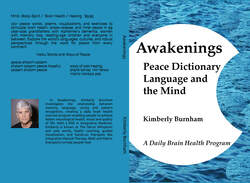 Look Inside on Amazon Look Inside on Amazon
Now Available: AwakeningsPlease share and write a review on Amazon.
Poet-In-Residence Position
I am looking for guest blog opportunities and a position as poet-in-residence. My current project is writing dictionary poems using words in different languages for the English word "peace." You can read some of my poems on Poemhunter . As poet-in-residence I would write poems on different words in different languages and broadcast them throughout the social media blogosphere. Each poem would link back to your site where the word or language appeared. I would expect some sort of stipend and a six month to one year placement. Please contact me for details if your organization is interested in having a poet-in-residence to help get your message out. Nervewhisperer@gmial.com Buy the print or eBook, review Awakenings then contact Kimberly for a free 20 minute brain health consultation. Email or Phone
(Regular rates $120 per hour or 10 sessions for $650.) (Integrative Medicine)
|
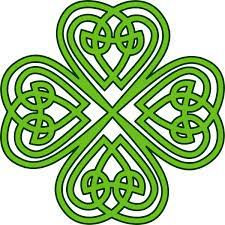
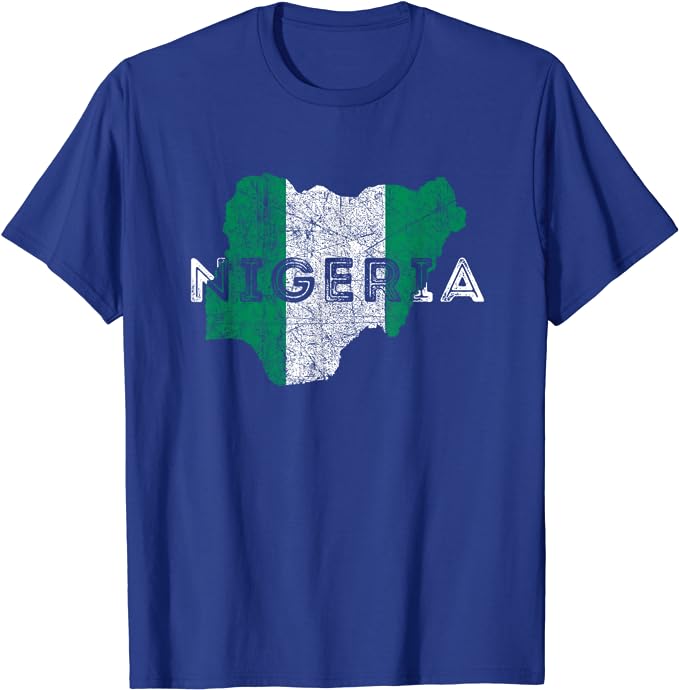

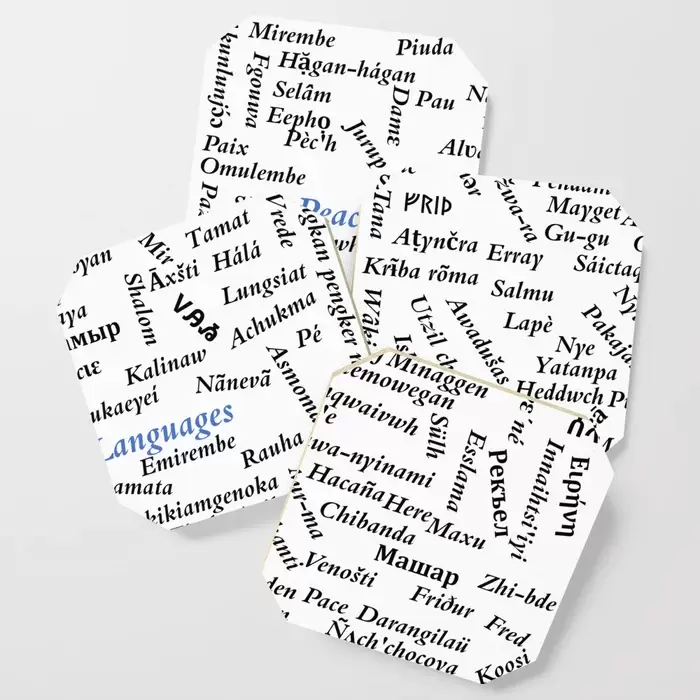

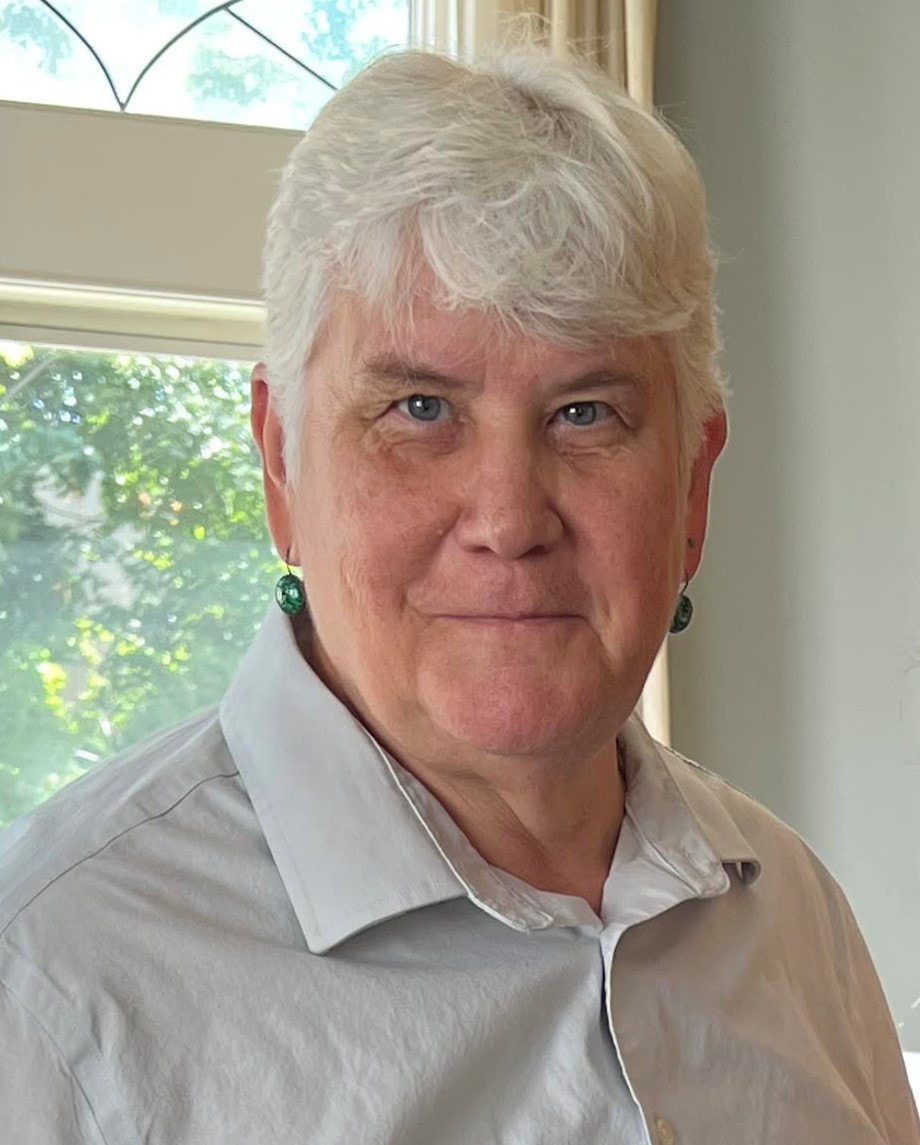
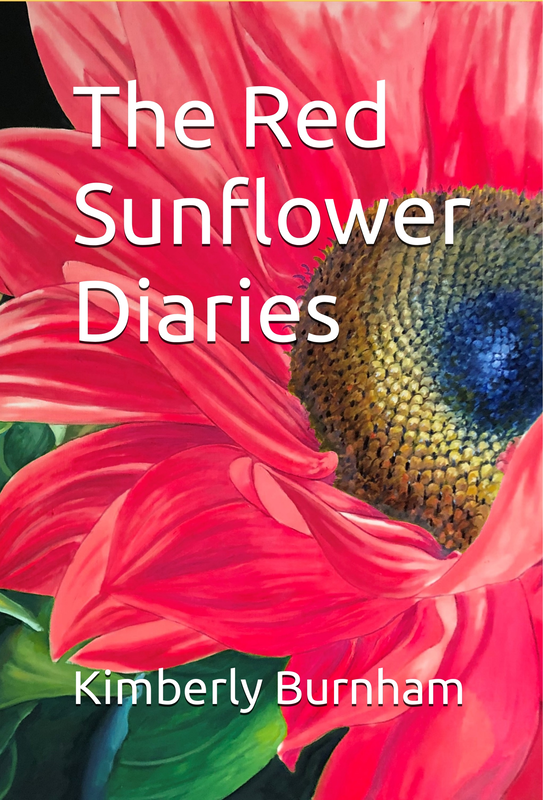


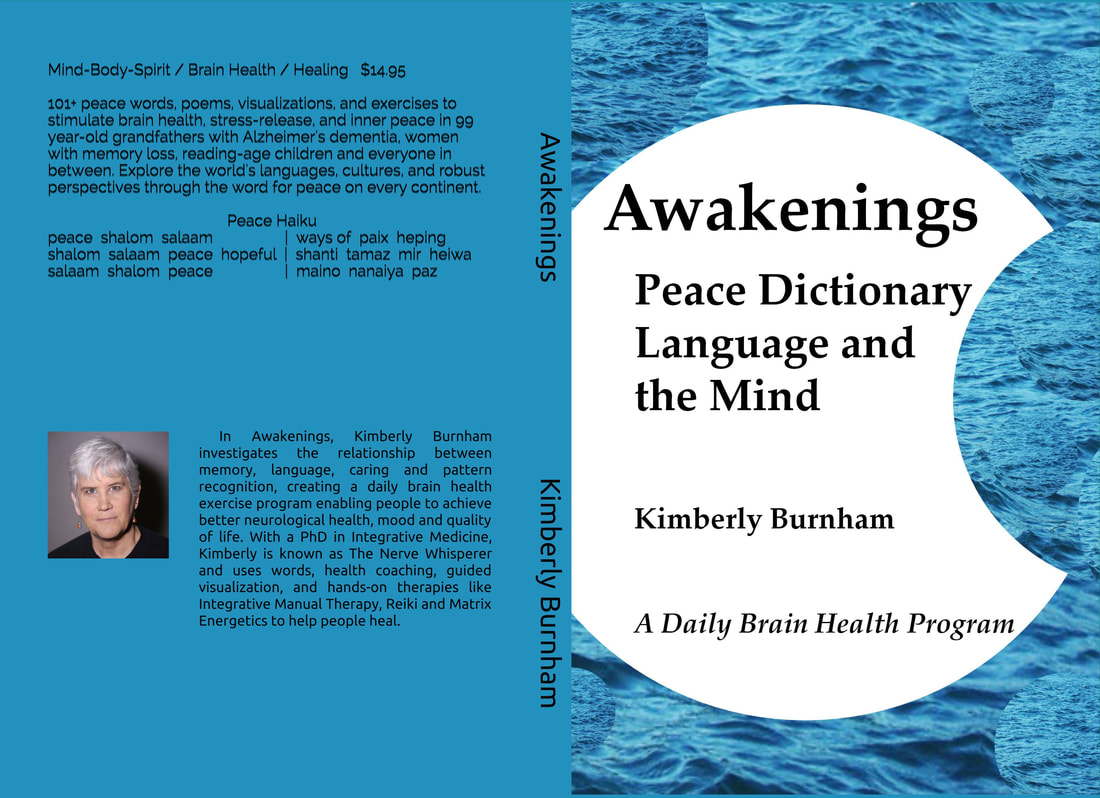
 RSS Feed
RSS Feed
